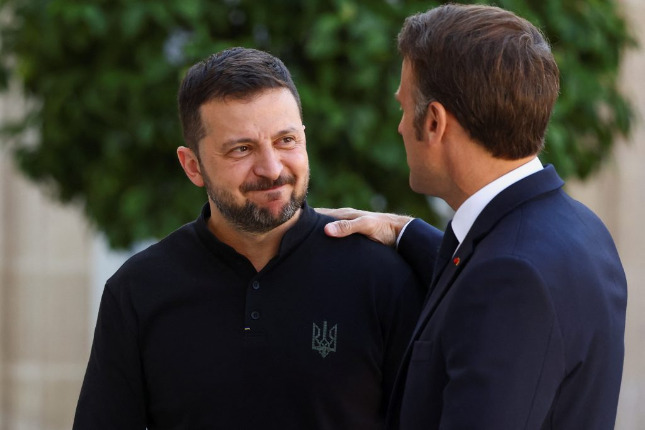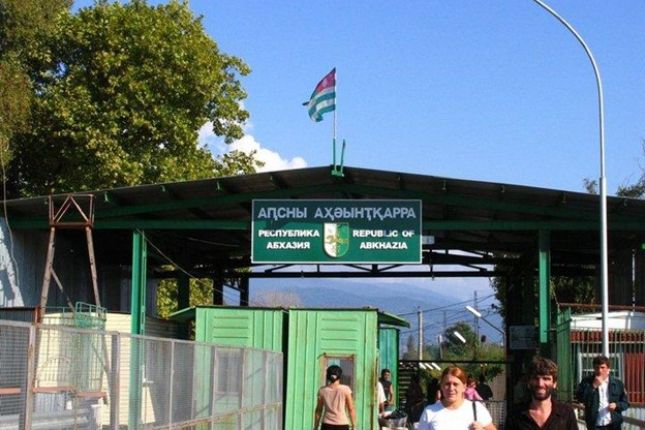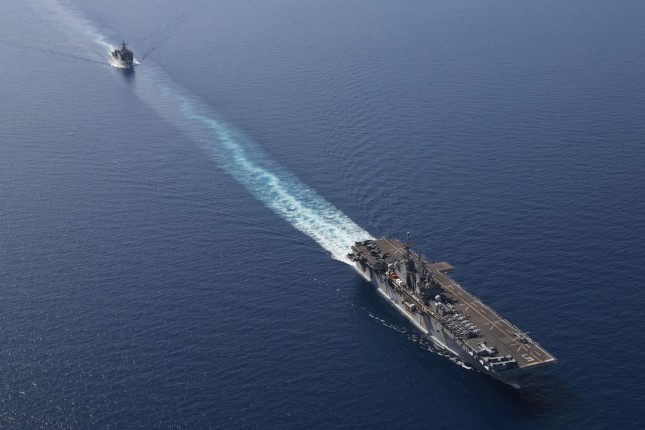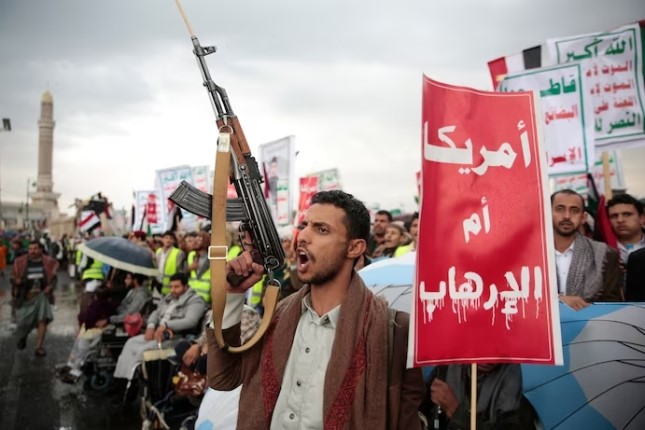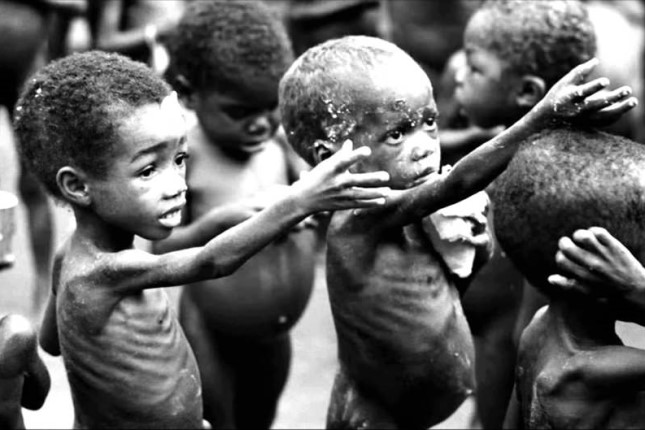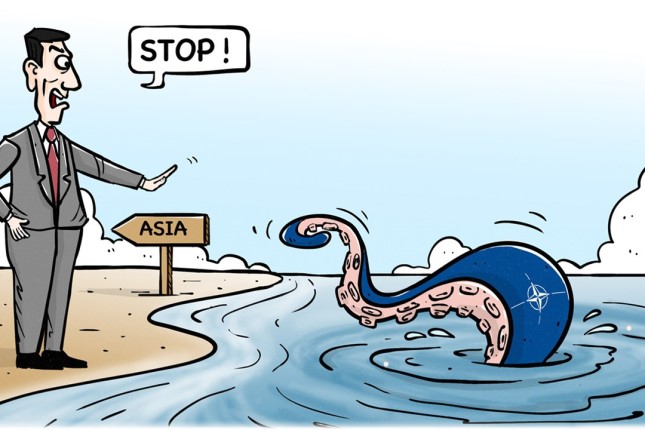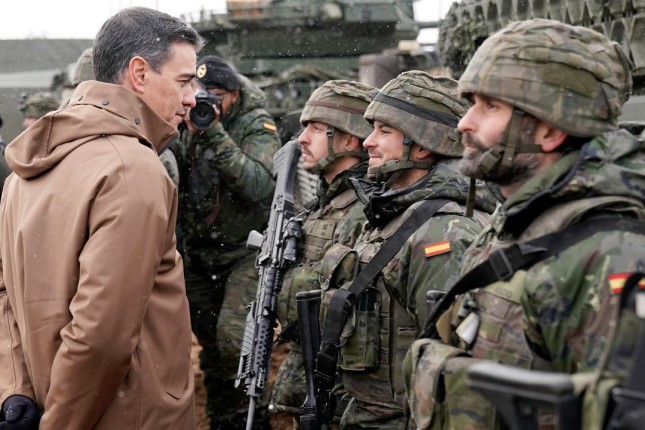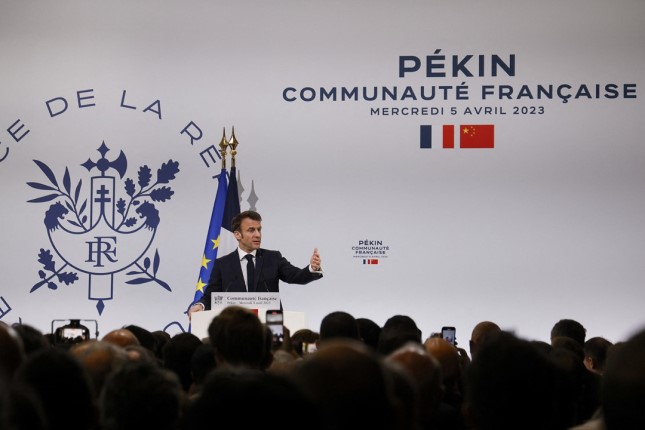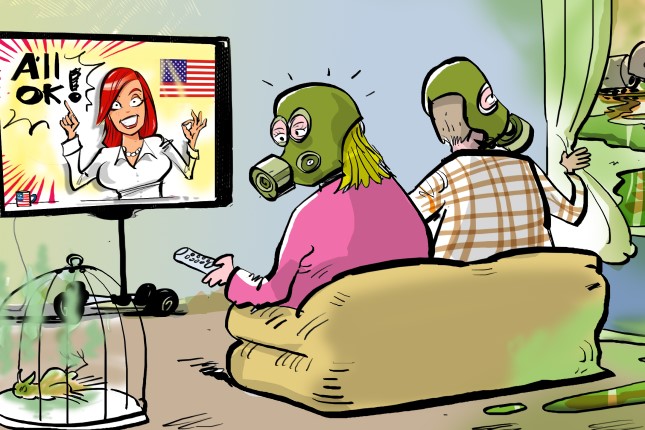On Friday, French President Emmanuel Macron said France was working to “finalize a coalition” of NATO countries that are willing to send troops to Ukraine to train Ukrainian forces, a step that would mark a huge escalation in the proxy war.
During a press conference with Ukrainian President Volodymyr Zelensky in Paris, Macron said Ukraine’s request for NATO trainers was “legitimate” and downplayed the risk of escalation.
“It’s much more efficient and practical for certain capacities in certain conditions to train on Ukrainian soil, it’s a legitimate request,” Macron said. “We’re going to use the coming days to finalize the broadest possible coalition.” He added that several NATO countries have already agreed to the plan.
Moscow has said that any French trainers deployed to Ukraine would be legitimate targets of the Russian military, but Macron dismissed the warning. “This is not deploying … European soldiers on the front line. It is recognizing the sovereignty of Ukraine over its territory,” he said. “Who would we be to give in to the invocations or threats of Russia?”
Reuters reported on May 30 that France planned to initially send a few dozen troops to asses the training mission before sending hundreds of soldiers. The talk of sending French troops to Ukraine has highlighted the fact that there are already a small number of NATO special operations soldiers inside Ukraine (97 as of March 2023), but a larger public deployment will take NATO involvement in the war to another level.
The advancement of France’s plans to send troops to Ukraine comes after the US gave Ukraine the greenlight to strike Russian territory with US-provided missiles, which also risks a major response from Russia. So far, the Biden administration has said it has no plans to send trainers to Ukraine, but it has taken escalatory steps that it’s previously ruled out throughout the conflict.
Photo: French President Emmanuel Macron meets Ukraine’s President Volodymyr Zelenskiy at the Elysee Palace in Paris, France, June 7, 2024 © Reiters / Hannah McKay.
Source: AntiWar.
